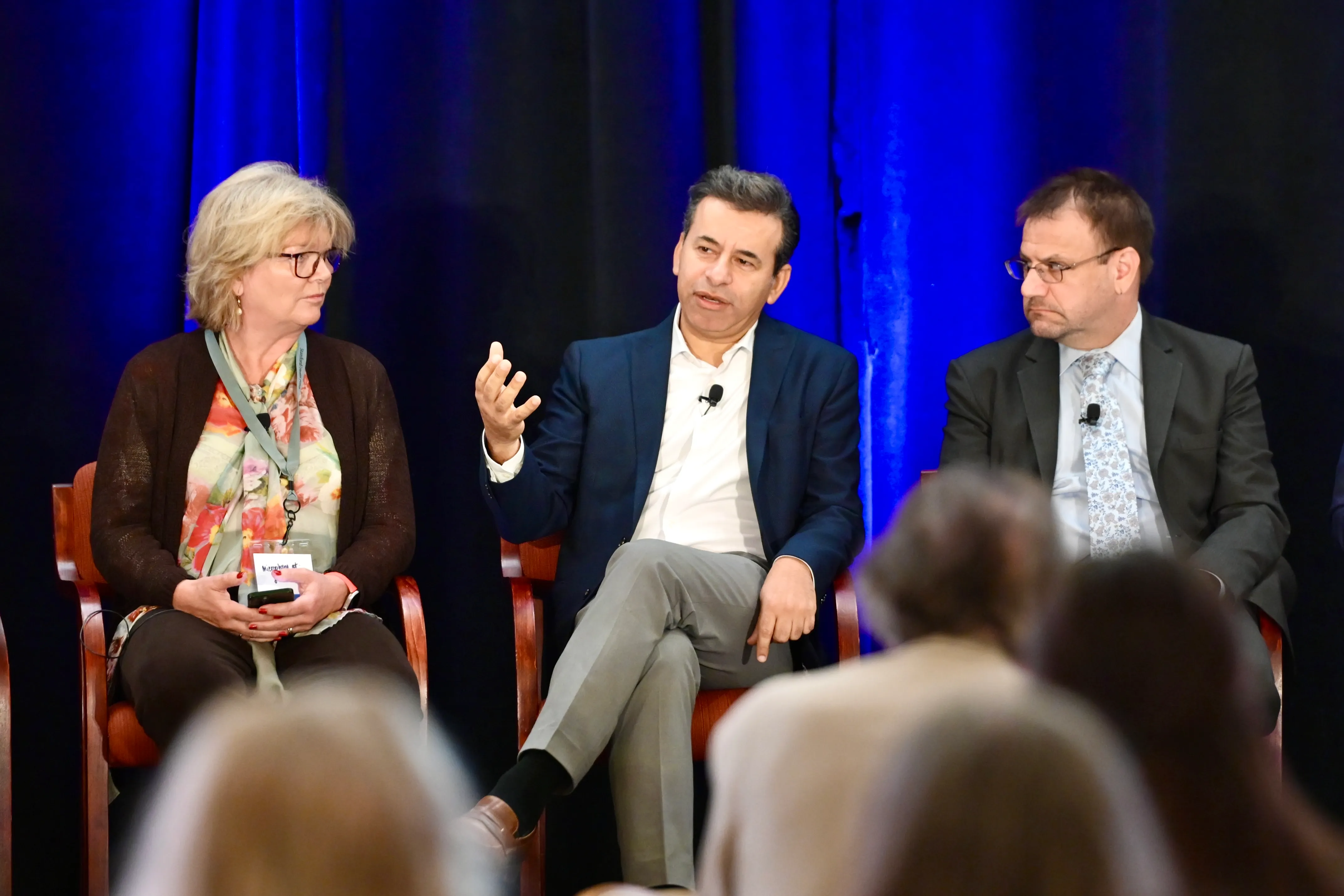A slate of panelists, including Scott Atlas and Anders Tegnell, convened at a Friday symposium to debate governments’ and universities’ discourse surrounding COVID-19 and pandemic policy.
Newly inaugurated University President Jonathan Levin ’94 said opening remarks at the event, “Pandemic Policy: Planning the Future, Assessing the Past,” hosted by the Freeman Spogli Institute’s (FSI) Stanford Health Policy initiative. Levin expressed disappointment at criticisms regarding the event’s selection of panelists.
“We have many issues today at Stanford, and on other campuses, where views are divided, and in some cases, like this one, where feelings are raw,” Levin said. “Yet I believe we need to make every effort to get people who disagree, even sharply, in dialogue with one another.”
Levin’s participation drew some criticism from the community, including from a former Ph.D. student who argued in a Daily op-ed that he was jeopardizing academic freedom by “standing with the very people who have launched deceitful and damaging attacks that have suppressed research at Stanford.”

Atlas and Tegnell were among the event’s speakers who ignited controversy for their actions during the COVID-19 pandemic. Atlas, a Hoover Senior Fellow and former special advisor to Trump, was condemned by the Faculty Senate in 2020 for promoting a “view of COVID-19 that contradicts medical science,” while Tegnell, former state epidemiologist of Sweden, drew ire for the country’s no-lockdown policy.
The event’s speaker selection sparked debate in the media. Some expressed concerns that the panels overrepresented conservative speakers. But Stanford Professor of Medicine Jay Bhattacharya, who claimed on X to be the event’s “main organizer,” disputed the idea.
“There [are] more speakers on the political left than on the right in both [of the first] panels,” he said in an interview with The Daily, adding that public health should not be regarded as a political issue.
In his speech, Levin characterized criticism of the event as “ironic” and “disturbing.”
“Instead of repairing rifts, as was intended, and perhaps spurring some fresh thinking, [publicizing the event] came to reopen and revisit a lot of old and existing divisions,” Levin said.
He said that many of the originally intended speakers representing diverse viewpoints were unable to attend, calling their absence “disappointing.”

Atlas and panelist Michael McConnell, a senior fellow at the Hoover Institution and director of Stanford Law School’s Constitutional Law Center, praised Levin’s engagement with the event.
Speakers in the first panel, which focused on evidence-based decision-making during the pandemic, expressed the importance of maintaining public trust in decision-makers.
Josh Salomon, a professor of health policy at the Stanford School of Medicine, said the uncertainties of the pandemic led decision-makers to “overpromise or oversimplify” in their messaging, adding that more transparency would have helped.
Marty Makary, a professor of surgery at the Johns Hopkins School of Medicine, pointed to a lack of clear communication from leaders, criticizing the World Health Organization’s (WHO) ambiguous response to whether COVID-19 was airborne.
UCSF Professor of Medicine Monica Gandhi said “community-based and multidisciplinary responses” are necessary in any pandemic.
Participants in the second panel, which centered misinformation, censorship and academic freedom, said they did not believe the government has a role to mandate what social media platforms can and cannot censor.
Panelist Jenin Younes, a litigator for the New Civil Liberties Alliance, said young people who “didn’t need the vaccine” were harmed by “dangerous side effects” and that the lockdowns exacerbated the COVID-19 death toll rather than minimizing it, a view that draws disagreements from many researchers. In her role at the New Civil Liberties Alliance, Younes challenges lockdowns, vaccine mandates and government censorship on social media.

Attendee Rafael Escandon, a bioethicist and doctor from Washington state, said he attended the event to engage with people who have differing opinions from him, noting that he appreciated Stanford for hosting an event that could allow for this difference of opinions.
However, Escandon said he did not see significant differences in opinion between the panelists. He said there was “not a lot of debate that was factually based” occurring during the panels, and that he was surprised there were no bioethicists scheduled to speak.
Stacey Barros, who also attended the event, said she felt that she heard from both sides of the political spectrum.
“I think it’s interesting that there was so much pushback to have the event,” she said. “I don’t know if it was balanced, but there’s enough of both sides that I’m hearing.”
Many panelists and attendees expressed the importance of hosting events that spark discussion between ideological opponents.
“It’s a very good start to open up conversation. It’s a critical first step,” attendee Robert Esposito said.
